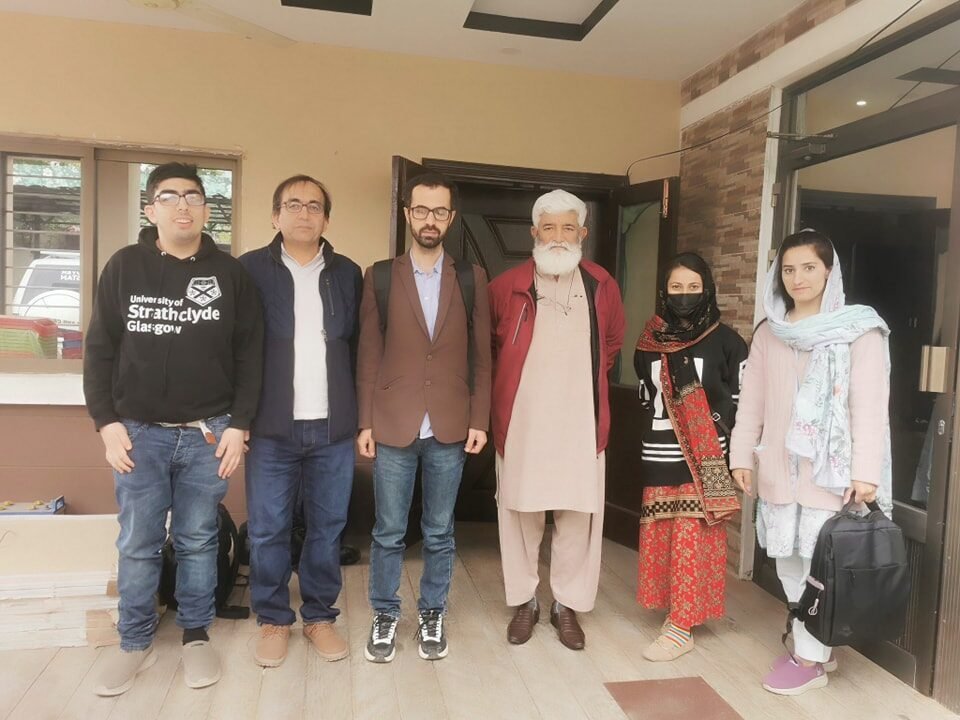Category: Uncategorized
Smoking The Rights of Disabled People
Introduction
Many people engage in the habit of smoking, releasing smoke into the air. Over time, the use of vapes and e-cigarettes has become so widespread in the West that it seems almost universal—young kids, teenagers, and older adults alike participate in this trend. While the act of smoking may seem harmless or insignificant to the larger world, the underlying reality reflects a different story.
For disabled individuals, the metaphorical “smoke” of this behavior symbolizes neglect. The act of smoking—releasing vapor or smoke into the air—serves no purpose beyond satisfying an individual’s craving. It mirrors the way society often overlooks the needs of disabled people, doing little to address structural barriers or create meaningful change. In this sense, just as smoking into the air is an unproductive habit, societal inaction can be similarly ineffective in tackling disability issues.
At its core, smoking and vaping are addictive behaviours driven by a craving for nicotine. Addiction can distract people from actively engaging with broader issues, including supporting those who are disabled or differently-abled. When energy is channelled into habitual, self-serving actions like smoking, it leaves little room for reflection on collective responsibility or making an impact in areas that truly matter, such as fostering inclusivity or advocating for marginalised groups.
In essence, this comparison highlights how ingrained habits—whether it’s smoking or societal indifference—can perpetuate cycles of neglect.
To break free from this, society must confront its “addiction” to complacency and instead channel its energy toward empowering and supporting those in need, such as the disabled community.
The act of doing but not saying
The Overlooked Needs of Disabled People Amid Societal Distractions
Disabled individuals face a daily struggle for visibility, resources, and inclusion. However, their needs are often overshadowed by societal behaviours and issues that, while significant in their own right, divert attention and energy away from creating systemic change
- The False Prioritization of Personal Habits Over Collective Responsibility:
Smoking, vaping, and similar habits symbolize how individuals often focus on immediate gratification or personal coping mechanisms rather than broader, more pressing societal issues. Similarly, governments and communities may prioritize addressing high-visibility concerns, like smoking-related health campaigns, while sidelining efforts to improve accessibility, promote disability rights, or reduce barriers for disabled individuals. For instance, while anti-smoking campaigns receive widespread funding and support, many disability initiatives remain underfunded and underrepresented in public discourse. - Distraction Through Debate:
Controversial issues like smoking, vaping, or other health-related behaviors dominate public debate, consuming resources and attention that could otherwise be directed toward neglected groups. For example, while legislative bodies argue over e-cigarette regulations, policies ensuring workplace accessibility or funding for disability-inclusive education languish in bureaucratic limbo. These distractions not only delay progress but also signal to disabled individuals that their concerns are not a societal priority. - The Cost of Neglect:
The financial burden of addressing smoking-related health issues is enormous, yet disability advocacy often struggles for funding. This reflects a systemic imbalance: resources are poured into mitigating self-inflicted problems like smoking while preventable barriers for disabled people—such as inaccessible infrastructure or lack of employment opportunities—are ignored. The societal cost of neglecting disability rights is immense, leading to increased dependency, unemployment, and healthcare costs for disabled individuals, which ultimately burdens society as a whole. - Reinforcement of Marginalization:
When issues like smoking dominate societal focus, they reinforce the marginalization of disabled people. The message is clear: issues impacting able-bodied individuals are deemed more urgent or important than the fundamental rights and needs of disabled people. This perpetuates cycles of exclusion, as the societal narrative consistently places other priorities above inclusivity and equity for disabled communities. - Breaking the Cycle of Neglect:
Just as smoking cessation requires intentional action to break an addictive cycle, addressing the neglect of disabled people requires a collective shift in priorities. Society must move away from reactive problem-solving, which addresses visible issues like smoking, to proactive inclusivity, which tackles the invisible struggles of marginalized groups. This shift demands a reallocation of resources, greater awareness, and a commitment to making disabled people a focal point of policymaking and societal discourse.
A Call to Action
The focus on issues like smoking symbolises a more profound truth about society’s complacency—an addiction to maintaining the status quo rather than confronting harder, less glamorous challenges like disability rights. To truly foster an inclusive society, we must challenge this complacency and redirect our collective energy and resources toward empowering disabled individuals.
The War Within – Inflicting Costs (Part one)
In previous articles, we discussed the effects, impacts, and solutions in detail. Now, I want to address a subject that delves into the psychological challenges faced by persons with disabilities. If we move persons with disabilities as objects and psychological challenges as subject, we can narrate a different story from the ableist viewpoint.
1837 to 1947 to 2017
This timeframe offers a critical lens through which to examine societal attitudes. The year 1837 marked the beginning of significant upheaval in British India, setting the stage for rebellion against colonial rule. Despite the passage of time, the psychological scars of colonialism linger, particularly in how we perceive and treat disabled individuals. Our colonial mindset, shaped by hierarchical structures and discriminatory norms, remains largely unchanged.
From the institutionalisation of disabled people during the British Raj to the continued marginalisation in post-colonial societies, the narrative around disability has often been one of exclusion and paternalism. Paternalism is a significant factor in Pakistan, but it has not shifted how we react to disabled people. It is like Katherine’s Mayo book of the Women of India, where she bragged that the Indian woman is inferior to the white man. Mayo’s book could be seen as a way of internalising how we feel about the disabled using the same terminology as the lame, dumb, deaf, blind in Pakistan even today.
The laws even remind disabled people of a colonial empire behest to work to serve the Raj not the people
Rational choice and ableism from DPOs
The rational choice we believe many make is rooted in one key question: “How convenient is this issue for me?” This stereotype-driven approach allows people to think, “I am not disabled; therefore, I won’t have these difficulties,” which creates a false sense of comfort. It is the easy way out—a mental shortcut that allows individuals to ignore the realities of ableism, reassuring themselves that these issues belong to someone else. From high-ranking officials, like a Chief Minister, down to local community leaders, this mindset sustains an illusion that dealing with disability inclusion is irrelevant to their own lives. But this notion is objectively false and contributes to a cycle of harmful inaction.
In reality, disability is not a niche issue. It is a fundamental human rights issue. Everyone, directly or indirectly, interacts with individuals facing disabilities. When leaders or decision-makers choose avoidance or indifference, they are essentially opting for convenience over justice. This mindset arguably violates the basic human rights of disabled individuals by limiting their access to opportunities, spaces, and roles within society.
By “human rights,” we mean the systemic exclusion of disabled individuals from workplaces, educational settings, and economic opportunities. In fact, a brief literature review conducted by the Goodwill Movement reveals that the economic inclusion of disabled people brings measurable benefits—higher productivity, enhanced community engagement, and strengthened social support networks. Yet, these truths remain buried under convenient excuses.
“Isn’t It Difficult?”
Another perspective that enables ableism is the idea that interacting with or including disabled individuals is inherently challenging. When we correspond with potential donors—via email, calls, or meetings—we often notice a subtle reluctance to engage fully. It feels as though many donors wish to “get through” these conversations so they can focus on something more familiar or comfortable. They seem eager to shift to another topic, to avoid exploring the profound value and necessity of true inclusion.
This brings us to a fundamental question: Are we merely servants to other’s convenience? It does feel like it many times.
Disabled individuals deserve respect and engagement, not to be merely dismissed as an “inconvenient” task. The expectation that organisations like ours must cater entirely to the preferences of potential donors instead of being met halfway shows a lack of genuine commitment towards societal change. That being said, we will commit to those donor preferences who are on the same page as us, and we have done so in the past
The cycle of trapped bias
Goodwill has been striving since 2021 to advocate for the rights and support of persons with disabilities in Gilgit Baltistan and among its global diaspora. This work aims to create lasting, collective benefits by ensuring inclusive development and resources for individuals with disabilities. Yet, why do we still encounter resistance, limited resource mobilisation, and fragmented support from within the community and diaspora? Game theory could explain this
Could this be akin to a ‘Prisoner’s Dilemma’ situation, where individual stakeholders, despite having mutual interests in the cause, prioritize short-term gains or avoid risks over collaboration? Just as in the classic dilemma, if all involved parties cooperated, the collective outcome could significantly uplift lives and strengthen the community’s social fabric. So, what factors keep stakeholders from fully investing, and how can we break this cycle to foster true, sustained support?
Objective
The objective of Goodwill is to get more donations to fund more projects. Let’s call this D and F. D and F have a crossover.
Variables
Has Goodwill launched a donation site? Yes
Has Goodwill partnered with a third sector organisation? Yes
Bias
In the classic Prisoner’s Dilemma game, Prisoners A and B have four possible outcomes based on their choices to either cooperate (stay silent) or defect (testify against each other). Similarly, in donating to a cause or supporting a cause, people have the will to stay silent or ignore it. The will here, though is not a rational one but the unconscious bias that keep’s one eyes and ears closed to reality
White Cane Day
In a remarkable celebration of International White Cane Safety Day, we joined hands with Karakoram International University’s Department of Education to raise awareness about accessibility and safe mobility for the visually impaired.
This event stands as a testament to our commitment to empowering visually impaired individuals in navigating safely and confidently through the world around them. Those who are blind by birth are the navigators of society, than those who choose to be in sociopolitical chaos.
The day was filled with engaging awareness sessions and interactive discussions, shedding light on the importance of inclusivity and the daily realities faced by those with visual impairments. A heartfelt thank you to Doctor Qutoshi, Doctor Hadi Haideri, and our dedicated volunteers and participants who made this event possible.
Join us in the journey to promote accessibility and inclusivity for all in Gilgit-Baltistan!
#InternationalWhiteCaneSafetyDay #GilgitBaltistanGoodwillMovement #AccessibilityMatters #EmpowermentThroughEducation #InclusiveGB

Political Football and Disabled People
General Overview
Disabled people are often used as political footballs, a term that refers to how politicians and parties use them to score points or advance their own agendas without genuinely addressing the issues that affect the disabled community.
This can manifest in several ways
- Policy Promises: Politicians frequently make grand promises about improving accessibility, funding for disability services, and inclusive education during election campaigns. However, once elected, these promises are often neglected or implemented inadequately, leaving disabled people with little real change in their day-to-day lives
- Budget Cuts and Reallocation: Disability programs and services are frequently the first targets for budget cuts during economic downturns or government restructuring. This can severely impact the quality of life for disabled individuals who rely on these services for their independence and well-being.
- Legislative Symbolism: There is a tendency to pass symbolic legislation that garners positive media attention but lacks the enforcement mechanisms or funding necessary to make a tangible difference. Such legislation gives the appearance of progress without delivering substantive benefits to the disabled community.
- Political Rhetoric: Politicians sometimes use the plight of disabled people to criticize opponents or gain moral high ground. This rhetoric often highlights the challenges faced by disabled individuals without committing to actionable solutions or engaging with the community to understand their needs.
- Tokenism: Disabled individuals are sometimes used as tokens in political campaigns or events to show inclusivity and diversity. However, this is often superficial, with little effort made to include disabled voices in decision-making processes or policy development.
- Polarization and Stigma: Disability issues can become polarizing topics, with political parties framing their opponents as either neglectful or overly generous with welfare. This can perpetuate stigma and misunderstanding about the disabled community, reinforcing harmful stereotypes and social barriers.
The exploitation of disabled people as political footballs not only undermines the dignity and rights of individuals with disabilities but also stalls genuine progress towards a more inclusive and equitable society. It is crucial for politicians and policymakers to engage meaningfully with the disabled community, listen to their voices, and commit to actions that deliver real and lasting improvements to their lives.
Individual Overview
Disabled people can experience bullying in various forms, often reflecting societal attitudes and lack of understanding about disabilities which empowers political power. Here are several ways disabled people might feel bullied in society
1. Verbal Abuse
- Insults and Name-Calling: Using derogatory terms or slurs aimed at their disability.
- Mockery: Imitating physical movements, speech patterns, or other characteristics of their disability in a mocking manner.
- Threats: Making threatening statements that target their disability.
2. Physical Bullying
- Assault: Physical attacks or threats of violence directed at them.
- Interference with Mobility Aids: Tampering with, hiding, or damaging wheelchairs, crutches, hearing aids, or other assistive devices.
- Unwanted Touching: Physically handling or moving a disabled person without their consent.
3. Social Bullying
- Exclusion: Deliberately excluding them from social activities, groups, or conversations.
- Gossip and Rumors: Spreading false or malicious stories about their disability or capabilities.
- Isolation: Encouraging others to ostracize or avoid them.
4. Cyberbullying
- Online Harassment: Sending abusive messages or threats via social media, email, or other online platforms.
- Defamatory Content: Posting harmful or false information about them online.
- Exclusion from Online Communities: Deliberately excluding them from online groups or forums.
5. Microaggressions
- Patronizing Attitudes: Speaking to them in a condescending tone, assuming they are less capable.
- Invasive Questions: Asking overly personal or intrusive questions about their disability.
- Ignoring Autonomy: Making decisions for them without consultation, assuming they are incapable of making their own choices.
6. Institutional Bullying
- Discrimination: Facing discrimination in workplaces, educational institutions, or public services due to their disability.
- Lack of Accommodations: Being denied reasonable adjustments or accommodations that they are legally entitled to.
- Inaccessibility: Physical or procedural barriers that prevent them from participating fully in society.
7. Emotional and Psychological Bullying
- Gaslighting: Convincing them that their experiences or feelings about their disability are invalid or exaggerated.
- Manipulation: Using their disability to manipulate or control them.
- Devaluation: Treating them as less valuable or capable because of their disability.
8. Financial Bullying
- Exploitation: Taking advantage of them financially, such as pressuring them to give money or manipulating them to sign financial documents.
All of the above takes place in Pakistan and elsewhere. But what are we doing about it? Nothing!
Meeting with Col Wali of the Moawin Foundation
On the second day in office, we were privileged to engage in a profound meeting with Colonel Wali, the esteemed regional head of the Moawin Foundation. The foundation’s noble mission to “Transform Lives through Education & Skill Development” resonated deeply with our own aspirations within the Gilgit Baltistan’s Goodwill Movement. As we sat down to deliberate, it became abundantly clear that a partnership between our two entities held immense potential to catalyze positive change and empower communities.
Colonel Wali articulated the Foundation’s commitment to providing access to quality education and fostering skill development among marginalized populations. Their initiatives ranged from establishing schools in remote areas to vocational training programs aimed at equipping individuals with the tools they need to thrive in today’s competitive landscape.
In turn, we shared our vision for the Gilgit Baltistan’s Goodwill Movement, emphasizing our dedication to grassroots empowerment and sustainable development. Our focus on community-driven solutions and inclusive growth aligned seamlessly with the ethos of the Moawin Foundation.
Throughout our discussion, ideas flowed freely, sparking innovative strategies for collaboration. We explored potential joint ventures, such as establishing educational centers in underserved regions of Gilgit Baltistan or launching joint skill development workshops tailored to the specific needs of local communities.
Furthermore, we identified areas where our respective strengths could complement each other, whether through sharing resources, expertise, or networks. By pooling our resources and leveraging our collective experience, we envisioned creating a synergy that would magnify our impact and reach even the most marginalized individuals.
As the meeting drew to a close, both parties expressed excitement about the possibilities that lay ahead.
We recognized that this partnership was not just about transforming individual lives but about igniting a ripple effect of positive change across entire communities.
With shared determination and a commitment to collaboration, we departed, eager to embark on this journey together towards a brighter, more inclusive future for all
TO MUSLIM PROFESSIONALS WORKING IN THE UNITED KINGDOM AND THE UNITED STATES
Dear Esteemed Professionals,
I trust this correspondence finds you in good health and high spirits.
My name is Ghulam Muhammad Baig, and I am currently enrolled as a student at Strathclyde University, Glasgow, pursuing a degree in Politics & International Relations. Concurrently, I am engaged in leading an NGO known as the Gilgit Baltistan’s Goodwill Movement, which is dedicated to serving the disabled communities of Gilgit Baltistan. Our operational headquarters are situated in Zulfiqarabad, Gilgit.
In essence, we are a non-profit organization committed to advocating for the rights and well-being of individuals with disabilities. Our initiatives encompass a broad spectrum, ranging from empowering disabled individuals through various skill development programs to addressing their fundamental needs by providing sustenance, shelter, and clothing to the marginalized segments within the disabled community.
Alhamdulillah, we began our work in June 2021 in Gilgit Baltistan, with support from senior doctors working within the NHS in the UK. Now, we are seeking additional support from other professionals within our community
We understand that many of you send money home as remittances, but we kindly ask you to consider the challenges faced by disabled individuals in our country as Allah says helping the poor is a good deed. Unfortunately, many of these people are excluded from assistance in society! We are seeking small donations, even if it is $5 or $10 because every penny counts towards helping these people.







